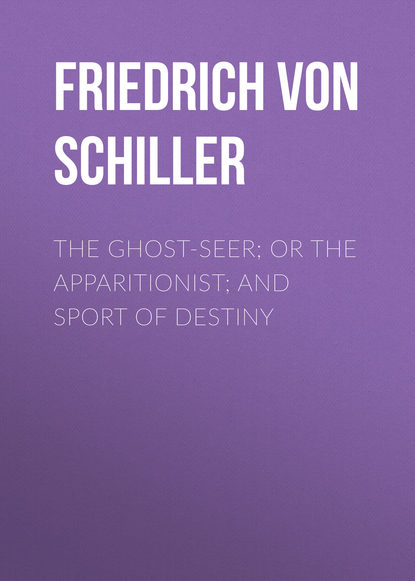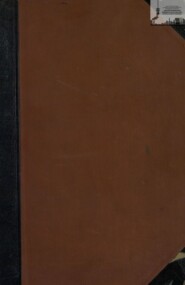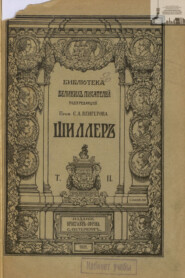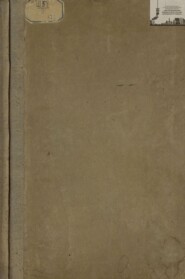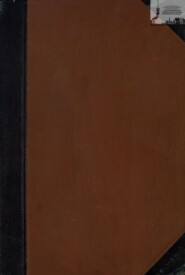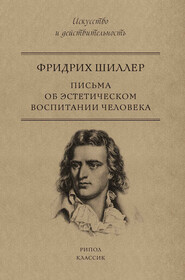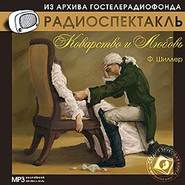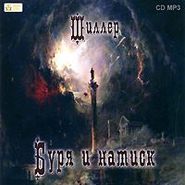По всем вопросам обращайтесь на: info@litportal.ru
(©) 2003-2024.
✖
The Ghost-Seer; or the Apparitionist; and Sport of Destiny
Настройки чтения
Размер шрифта
Высота строк
Поля
“This scene moved me strangely. It was the man that chiefly excited my sympathy and interest. Some violent emotion seemed to struggle in his breast; it was as if some irresistible force drew him towards her, while an unseen arm held him back. Silent, but agonizing, was the struggle, and beautiful the temptation. ‘No,’ I thought, ‘he attempts too much; he will, he must yield.’
“At his silent intimation the young negro disappeared. I now expected some touching scene – a prayer on bended knees, and a reconciliation sealed with glowing kisses. But no! nothing of the kind occurred. The incomprehensible being took from his pocketbook a sealed packet, and placed it in the hands of the lady. Sadness overcast her face as she she looked at it, and a tear bedewed her eye.
“After a short silence they separated. At this moment an elderly lady advanced from one of the sidewalks, who had remained at a distance, and whom I now first discovered. She and the fair girl slowly advanced along the path, and, while they were earnestly engaged in conversation, the stranger took the opportunity of remaining behind. With his eyes turned towards her, he stood irresolute, at one instant making a rapid step forward, and in the next retreating. In another moment he had disappeared in the copse.
“The women at length look round, seem uneasy at not finding him, and pause as if to await his coming. He comes not. Anxious glances are cast around, and steps are redoubled. My eyes aid in searching through the garden; he comes not, he is nowhere to be seen.
“Suddenly I see a plash in the canal, and see a gondola moving from the shore. It is he, and I scarcely can refrain from calling to him. Now the whole thing is clear – it was a parting.
“She appears to have a presentiment of what has happened. With a speed that her companion cannot use she hastens to the shore. Too late! Quick as the arrow in its flight the gondola bounds forward, and soon nothing is visible but a white handkerchief fluttering in the air from afar. Soon after this I saw the fair incognita and her companion cross the water.
“When I awoke from a short sleep I could not help smiling at my delusion. My fancy had incorporated these events in my dreams until truth itself seemed a dream. A maiden, fair as an houri, wandering beneath my windows at break of day with her lover – and a lover who did not know how to make a better use of such an hour. Surely these supplied materials for the composition of a picture which might well occupy the fancy of a dreamer! But the dream had been too lovely for me not to desire its renewal again and again; nay, even the garden had become more charming in my sight since my imagination had peopled it with such attractive forms. Several cheerless days that succeeded this eventful morning drove me from the window, but the first fine evening involuntarily drew me back to my post of observation. Judge of my surprise when after a short search I caught sight of the white dress of my incognita! Yes, it was she herself. I had not dreamed!
“Her former companion was with her, and led by the hand a little boy; but the fair girl herself walked apart, and seemed absorbed in thought. All spots were visited that had been rendered memorable by the presence of her friend. She paused for a long time before the basin, and her fixed gaze seemed to seek on its crystal mirror the reflection of one beloved form.
“Although her noble beauty had attracted me when I first saw her the impression produced was even stronger on this occasion, although perhaps at the same time more conducive to gentler emotions. I had now ample opportunity of considering this divine form; the surprise of the first impression gradually gave place to softer feelings. The glory that seemed to invest her had departed, and I saw before me the loveliest of women, and felt my senses inflamed. In a moment the resolution was formed that she must be mine.
“While I was deliberating whether I should descend and approach her, or whether before I ventured on such a step it would not be better to obtain information regarding her, a door opened in the convent wall, through which there advanced a Carmelite monk. The sound of his approach roused the lady, and I saw her advance with hurried steps towards him. He drew from his bosom a paper, which she eagerly grasped, while a vivid color instantaneously suffused her countenance.
“At this moment I was called from the window by the arrival of my usual evening visitor. I carefully avoided approaching the spot again as I had no desire to share my conquest with another. For a whole hour I was obliged to endure this painful constraint before I could succeed in freeing myself from my importunate guest, and when I hastened to the window all had disappeared.
“The garden was empty when I entered it; no vessel of any kind was visible in the canal; no trace of people on any side; I neither knew whence she had come nor whither she bad gone. While I was looking round me in all directions I observed something white upon the ground. On drawing near I found it was a piece of paper folded in the shape of a note. What could it be but the letter which the Carmelite had brought? ‘Happy discovery!’ I exclaimed; ‘this will reveal the whole secret, and make me master of her fate.’
“The letter was sealed with a sphinx, had no superscription, and was written in cyphers; this, however, did not discourage me, for I have some knowledge of this mode of writing. I copied it hastily, as there was every reason to expect that she would soon miss it and return in search of it. If she should not find it she would regard its loss as an evidence that the garden was resorted to by different persons, and such a discovery might easily deter her from visiting it again. And what worse fortune could attend my hopes.
“That which I had conjectured actually took place, and I had scarcely ended my copy when she reappeared with her former companion, anxiously intent on the search. I attached the note to a tile which I had detached from the roof, and dropped it at a spot which she would pass. Her gracefully expressed joy at finding it rewarded me for my generosity. She examined it in every part with keen, searching glances, as if she were seeking to detect the unhallowed hands that might have touched it; but the contented look with which she hid it in her bosom showed that she was free from all suspicion. She went, and the parting glance she threw on the garden seemed expressive of gratitude to the guardian deities of the spot, who had so faithfully watched over the secret of her heart.
“I now hastened to decipher the letter. After trying several languages, I at length succeeded by the use of English. Its contents were so remarkable that my memory still retains a perfect recollection of them.”
I am interrupted, and must give you the conclusion on a future occasion.
LETTER VIII.
BARON F – TO COUNT O – August
In truth, my dearest friend, you do the good Biondello injustice. The suspicion you entertain against him is unfounded, and while I allow you full liberty to condemn all Italians generally, I must maintain that this one at least is an honest man.
You think it singular that a person of such brilliant endowments and such exemplary conduct should debase himself to enter the service of another if he were not actuated by secret motives; and these, you further conclude, must necessarily be of a suspicious character. But where is the novelty of a man of talent and of merit endeavoring to win favor with a prince who has the power of establishing his fortune? Is there anything derogatory in serving the prince? and has not Biondello clearly shown that his devotion is purely personal by confessing that he earnestly desired to make a certain request of the prince? The whole mystery will, therefore, no doubt be revealed when he acquaints him of his wishes. He may certainly be actuated by secret motives, but why may these not be innocent in their nature?
You think it strange that this Biondello should have kept all his great talents concealed, and in no way have attracted attention during the early months of our acquaintance with him, when you were still with us. This I grant; but what opportunity had he then of distinguishing himself? The prince had not yet called his powers into requisition, and chance, therefore, could alone aid us in discovering his talents.
He very recently gave a proof of his devotion and honesty of purpose which must at once annihilate all your doubts. The prince was watched; measures were being taken to gain information regarding his mode of life, associates, and general habits. I know not with whom this inquisitiveness originated. Let me beg your attention, however, to what I am about to relate: —
There is a house in St. George’s which Biondello is in the habit of frequenting. He probably finds some peculiar attractions there, but of this I know nothing. It happened a few days ago that he there met assembled together a party of civil and military officers in the service of the government, old acquaintances and jovial comrades of his own. Surprise and pleasure were expressed on all sides at this meeting. Their former good-fellowship was re-established; and after each in turn had related his own history up to the present time, Biondello was called upon to give an account of his life; this he did in a few words. He was congratulated on his new position; his companions had heard accounts of the splendid footing on which the Prince of – ‘s establishment was maintained; of his liberality, especially to persons who showed discretion in keeping secrets; the prince’s connection with the Cardinal A – i was well known, he was said to be addicted to play, etc. Biondello’s surprise at this is observed, and jokes are passed upon the mystery which he tries to keep up, although it is well known that he is the emissary of the Prince of – . The two lawyers of the party make him sit down between them; their glasses are repeatedly emptied, he is urged to drink, but excuses himself on the grounds of inability to bear wine; at last, however, he yields to their wishes, in order that he may the better pretend intoxication.
“Yes!” cried one of the lawyers, “Biondello understands his business, but he has not yet learned all the tricks of the trade; he is but a novice.”
“What have I still to learn?” ask Biondello.
“You understand the art of keeping a secret,” remarked the other; “but you have still to learn that of parting with it to advantage.”
“Am I likely to find a purchaser for any that I may have to dispose of?” asked Biondello.
On this the other guests withdrew from the apartment, and left him alone with his two neighbors, who continued the conversation in the same strain. The substance of the whole was, however, briefly as follows: Biondello was to procure them certain information regarding the intercourse of the prince with the cardinal and his nephew, acquaint them with the source from whence the prince derived his money, and to intercept all letters written to Count O – . Biondello put them off to a future occasion, but he was unsuccessful in his attempts to draw from them the name of the person by whom they were employed. From the splendid nature of the proposals made to him it was evident, however, that they emanated from some influential and extremely wealthy party.
Last night he related the whole occurrence to the prince, whose first impulse was without further ceremony to secure the maneuverers at once, but to this Biondello strongly objected. He urged that he would be obliged to set them at liberty again, and that, in this case, he should endanger not only his credit among this class of men, but even his life. All these men were connected together, and bound by one common interest, each one making the cause of the others his own; in fact, he would rather make enemies of the senate of Venice than be regarded by these men as a traitor – and, besides, he could no longer be useful to the prince if he lost the confidence of this class of people.
We have pondered and conjectured much as to the source of all this. Who is there in Venice that can care to know what money my master receives or pays out, what passess between Cardinal A – i and himself, and what I write to you? Can it be some scheme of the Prince of – d – , or is the Armenian again on the alert?
LETTER IX.
BARON F – TO COUNT O – . August
The prince is revelling in love and bliss. He has recovered his fair Greek. I must relate to you how this happened.
A traveller, who had crossed from Chiozza, gave the prince so animated an account of the beauty of this place, which is charmingly situated on the shores of the gulf, that he became very anxious to see it. Yesterday was fixed upon for the excursion; and, in order to avoid all restraint and display, no one was to accompany him but Z – and myself, together with Biondello, as my master wished to remain unknown. We found a vessel ready to start, and engaged our passage at once. The company was very mixed but not numerous, and the passage was made without the occurrence of any circumstance worthy of notice.
Chiozza is built, like Venice, on a foundation of wooden piles, and is said to contain about forty thousand inhabitants. There are but few of the higher classes resident there, but one meets sailors and fishermen at every step. Whoever appears in a peruke, or a cloak, is regarded as an aristocrat – a rich man; the cap and overcoat are here the insignia of the poor. The situation is certainly very lovely, but it will not bear a comparison with Venice.
We did not remain long, for the captain, who had more passengers for the return voyage, was obliged to be in Venice at an early hour, and there was nothing at Chiozza to make the prince desirous of remaining. All the passengers were on board when we reached the vessel. As we had found it so difficult to place ourselves on a social footing with the company on the outward passage, we determined on this occasion to secure a cabin to ourselves. The prince inquired who the new-comers were, and was informed that they were a Dominican and some ladies, who were returning to Venice. My master evincing no curiosity to see them, we immediately betook ourselves to our cabin.
The Greek was the subject of our conversation throughout the whole passage, as she had been during our former transit. The prince dwelt with ardor on her appearance in the church; and whilst numerous plans were in turn devised and rejected, hours passed like a moment of time, and we were already in sight of Venice. Some of the passengers now disembarked, the Dominican amongst the number. The captain went to the ladies, who, as we now first learned, had been separated from us by only a thin wooden partition, and asked them where they wished to land. The island of Murano was named in reply to his inquiry, and the house indicated. “The island of Murano!” exclaimed the prince, who seemed suddenly struck by a startling presentiment. Before I could reply to his exclamation, Biondello rushed into the cabin. “Do you know,” asked he eagerly, “who is on board with us?” The prince started to his feet, as Biondello continued, “She is here! she herself! I have just spoken to her companion!”
The prince hurried out. He felt as if he could not breathe in our narrow cabin, and I believe at that moment as if the whole world would have been too narrow for him. A thousand conflicting feelings struggled for the mastery in his heart; his knees trembled, and his countenance was alternately flushed and pallid. I sympathized and participated in his emotion, but I cannot by words convey to your mind any idea of the state in which he was.
When we stopped at Murano, the prince sprang on shore. She advanced from her cabin. I read in the face of the prince that it was indeed the Greek. One glance was sufficient to dispel all doubt on that point. A more lovely creature I have never seen. Even the prince’s glowing descriptions fell far short of the reality. A radiant blush suffused her face when she saw my master. She must have heard all we said, and could not fail to know that she herself had been the subject of our conversation. She exchanged a significant glance with her companion, which seemed to say, “That is he;” and then cast her eyes to the ground with diffident confusion. On placing her foot on the narrow plank, which had been thrown from the vessel to the shore, she seemed anxiously to hesitate, less, as it seemed to me, from the fear of falling than from her inability to cross the board without assistance, which was proffered her by the outstretched arm of the prince. Necessity overcame her reluctance, and, accepting the aid of his hand, she stepped on shore. Excessive mental agitation had rendered the prince uncourteous, and he wholly forgot to offer his services to the other lady – but what was there that he would not have forgotten at this moment? My attention in atoning for the remissness of the prince prevented my hearing the commencement of a conversation which had begun between him and the young Greek, while I had been helping the other lady on shore.
He was still holding her hand in his, probably from absence of mind, and without being conscious of the fact.
“This is not the first time, Signora, that – that” – he stopped short, unable to finish the sentence.
“I think I remember” she faltered.
“We met in the church of – ,” said he, quickly.
“Yes, it was in the church of – ,” she rejoined.
“And could I have supposed that this day would have brought me – ”
Here she gently withdrew her hand from his – he was evidently embarrassed; but Biondello, who had in the meantime been speaking to the servant, now came to his aid.
“Si-nor,” said he, “the ladies had ordered sedans to be in readiness for them; they have not yet come, for we are here before the expected time. But there is a garden close by in which you may remain until the crowd has dispersed.”
The proposal was accepted; you may conceive with what alacrity on the part of the prince! We remained in the garden till late in the evening; and, fortunately, Z – and myself so effectually succeeded in occupying the attention of the elder lady that the prince was enabled, undisturbed, to carry on his conversation with the fair Greek. You will easily believe that he made good use of his time, when I tell you that he obtained permission to visit her. At the very moment that I am now writing he is with her; on his return I shall be able to give you further particulars regarding her.
When we got home yesterday we found that the long-expected remittances had arrived from our court; but at the same time the prince received a letter which excited his indignation to the highest pitch. He has been recalled, and that in a tone and manner to which he is wholly unaccustomed. He immediately wrote a reply in a similar spirit, and intends remaining. The remittances are only just sufficient to pay the interest on the capital which he owes. We are looking with impatience for a reply from his sister.
LETTER X.





